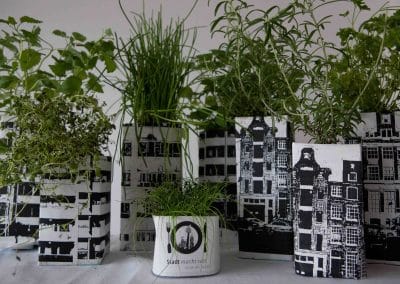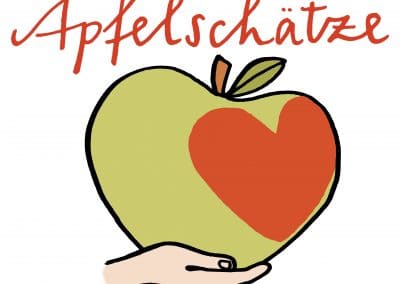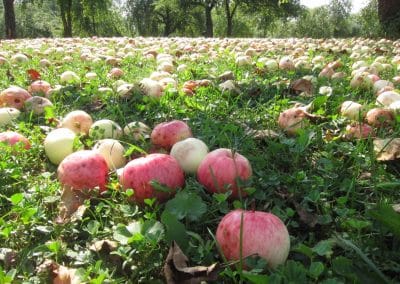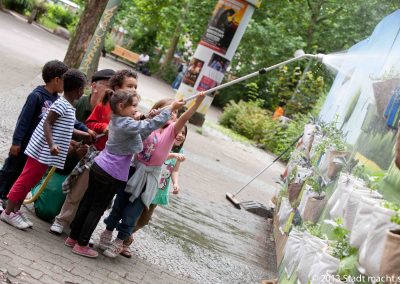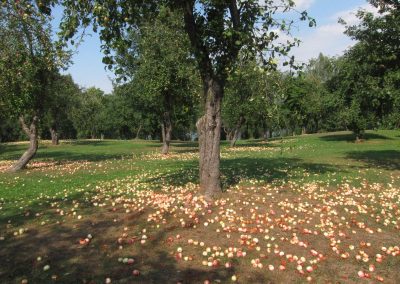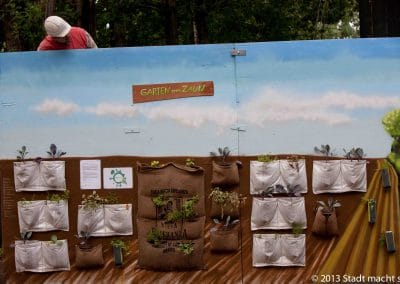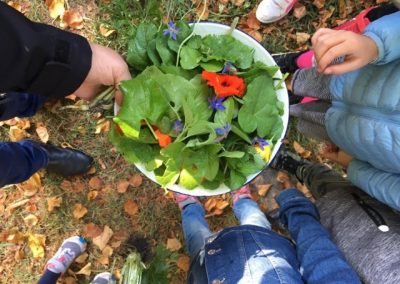Stadt macht satt
Stadt macht satt
“Stadt macht satt” (Harvest the City) is an initiative of the artist Anja Fiedler. “Harvest the city” gathers and develops ideas on how we can harvest delicious things in the city and how we can produce food ourselves – even in the smallest of spaces.; ; Anja Fiedler developed different prototypes of vertical gardening (window garden, salad and vegetable trees), different interactive social sculpture events to activate people to rethink our food system and find their own way to change it.; ; With her other initiative “Apfelschätze” (Apple treasures) (www.apfelschaetze.de) she rescues tons of apples every years from rotting.
Anja Fiedler believes that own FARMING, GROWING, HARVESTING and COOKING, we townspeople come closer to nature and our food. This not only makes our cities greener, but also our actions. The UNESCO has awarded “Stadt macht satt” and “Apfelschätze” as an exemplary project to teach children and adults how to think and act sustainably.
Food is one of the most effective ways to solve some of our main future problems like feeding the growing world population, climate change, preserving soil and water,etc. More than 50 % of the world population lives in cities, so edible city can help solve some of the supply questions, but also educate people and make them rethink. I made research to other edible cities and would love to have more connections and exchange.
My approach as an artist of social sculptures helps me to develop low-threshold, but emotional actions that reach very different people. Within the project people reflect their own possibilities to change things in there everyday life and most of them put it in their practice. I also give lectures and people replicate my projects with great success.
I am also connected with urban gardeners in Berlin and in Toronto. Some of the achievements of this initiative are providing to 50-70% of the people the chance to pick their own apple supply continue to do this in the following years. Children eat and cook fresh food and make their parents rescue food themselves. There is also Skinfold – where I cook together with children and adults different fresh food and make at the same time all sorts of cosmetics. People also learn how buy differently afterwards. No microplastic, no palm oil. Eat better.
Contact:
Habersaathstr. 39
10115 Berlin
Germany
[ess_grid alias="grid-1"]
Updates für diese Seite an EdiCitNet schicken
Wir freuen uns, wenn du uns Updates für diese Seite per E-Mail schickst.

